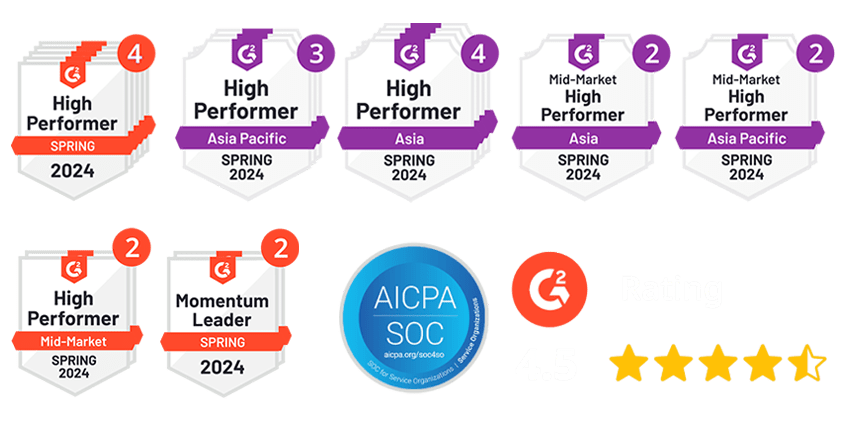An accounting team plays a vital role in the financial management of an organization. It is responsible for maintaining the company’s financial records, ensuring compliance with regulatory requirements, and preparing financial reports.
In this article, we will discuss the key functions of an accounting team, the common challenges they face, and some frequently asked questions.
What Is an Accounting Team?
The accounting team comprises a group of committed finance professionals who play a crucial role in financial management. This is because the accounting team is accountable for guaranteeing complete transparency in financial transactions, providing accurate financial reporting for decision-making, and aiding a company in realizing its financial objectives.
Key Functions of an Accounting Team
Here are the main areas that the accounting team is responsible for:
Financial Reporting and Analysis
The department prepares cash flow statements, income reports, and other financial statements by gathering important data from the accounting software and presenting the interpretation to the management. Through business financial reports, companies can gain insights into profitability across different strategies and areas that need improvement.
These financial metrics will then extend to decision-making in inter-department budgeting and strategic planning, investment proposals, and external partnerships, among others.
Accounts Payable
Most companies have their own accounts payable function that handles the money the business owes to external parties, such as vendors and suppliers, thus marking them as a liability.
The AP employees must ensure that all bills are paid on time and recorded accurately on the balance sheet. They’re also in charge of tracking the company’s credit health in line with the cash going out to calculate the total revenue of the business.
Accounts Receivable
Separate from AP, the accounts receivable function handles the money that external parties owe to the business. The AR employees need to work with the account managers to collect customer payments in a timely manner, before recording the cash inflow to the balance sheet.
This is why it’s important to separate AR and AP records to prevent any incorrect data entry so that the company can have transparency in its cash flow performance.
Tax and Financial Control
The financial control team will need to partner with other financial departments in ensuring that the processes are compliant with the laws. It’s important for them to be aware of any changes in regulations and the effect on the business to take the right actionable steps.
Budgeting and Forecasting
An accounting team has a crucial role in the budgeting control stages, ensuring all departments are not exceeding the limit set. If else, they’ll need to implement critical measures to cut operational expenses.
This team helps the management create and monitor different types of budgets and forecasts. They also provide support to other departments in aligning strategies with the budget.
Payroll Management
In terms of processing payroll, the accounting team will calculate the monetary compensation for the employees. In doing so, they manage the incurring taxes and deductions while taking into account other factors that impact one’s pay, such as promotions.
Compliance
As for compliance, the team has to make sure that the departments comply with accounting principles and regulatory requirements. This is to ensure that other departments follow accounting principles that help to ensure accuracy as well as prevent theft and fraud.
The Structure of an Accounting Team
The members of an accounting department depend on the size and needs of an organization. Smaller companies might only have a bookkeeper who will be in charge of maintaining accurate records of transactions coming in and out regularly.
Bigger companies, however, tend to have a mix of the following functions to ensure the operational efficiency of the business:
Chief Financial Officer
A Chief Financial Officer (CFO) is the most senior financial executive responsible for strategizing the company’s long-term financial success. The rest of the accounting department reports to this lead.
The CFO analyzes the company’s financial performance such as ROI (return on investment) and different assets such as investment and expenses.
A CFO also prepares reports and presents them to the CFO and board of directors on strategic initiatives to grow the business in the long term. Other core roles and functions of a CFO include risk management, treasury or cash management, corporate taxation filing, and fundraising.
Accountant
There are two types of accountants:
- The CPA or Certified Public Accountant is an expert in finance and tax matters. Together with the CFO, they develop short- and long-term tax strategies that align with business goals to ensure optimal tax projections, such as year-end taxation.
- The Advanced Accountant focuses on accounting and finance operations on a day-to-day basis, including accounts receivable, accounts payable, internal auditing, and financial statement analysis. Their ultimate goal is to ensure that all aspects of the company’s finances are accurate before reporting to management and making critical decisions.
Controller
A controller has the role of overseeing the accounting operations of a firm and taking control of the finance reports In contrast, an accountant mainly focuses on maintaining and analyzing financial records.
The controller is responsible for various essential tasks such as implementing internal systems, cost accounting and budgeting, compliance reporting, transaction and financial reporting and documentation, training and supervising accounting staff, as well as reconciling bank and credit statements.
Bookkeeper
A bookkeeper is accountable for managing the day-to-day operations of the accounting department. To keep track of the company’s financial position and comply with regulations, they’ll use the general ledger document to complete data entries and collect transactions.
In addition to monitoring financial activities, they’re also responsible for creating and organizing receipts and invoices for account receivables, writing checks, and processing payments.
Common Challenges Faced by Accounting Teams
Accounting teams face a lot of challenges too, and here are the most common ones:
Data Accuracy and Integrity
Accounting teams have a hard time ensuring accuracy due to the high load of data. Fraudulence and discrepancies oftentimes occur due to financial oversights. These errors pose severe threats to the company, including financial and reputational losses.
Time Management
Accounting teams often have to deal with tight deadlines, especially during the financial reporting season. Managing multiple tasks simultaneously and ensuring that everything is completed on time can be a significant challenge.
Communication
As the finance and accounting departments deal with big volumes of financial data lately, it’s difficult to keep all stakeholders in the same loop. Usually, internal teams don’t have centralized documentation to track any changes. This results in miscommunications which can potentially misalign the team, further delaying processes.
Compliance
Staying compliant with the regulations and standards is important, but becomes challenging as they regularly change. Training the internal teams to make sure that they’re following these requirements is another hassle for the accounting department.
Manual Processes
Most accounting tasks are repetitively mundane, time-consuming, and prone to errors. Here are some examples from the AR operations:
As for AP workflows, unfortunately, the challenges further add up:
To bypass any of these challenges, integrate your software with an automation tool such as Peakflo. Using end-to-end AR and AP automation, you can shorten the time to pay bills and collect invoices, therefore bringing more profit to the company.
See how our product will benefit your company and start saving with us.
Frequently Asked Questions
What Are the Essential Skills for an Accounting Team?
Having an educational degree in economics or accounting will be a benchmark to validate the competencies. Additionally, members of the accounting team need to be attentive to details, tech-savvy, and strong communicators. Reporting and analytical skills will also be important.
Which Software Do Accounting Teams Use?
Most accounting teams use different software based on the size of the organization, namely Quickbooks, NetSuite, Xero, and SAP. Today, more and more accounting teams integrate an automation system into their tech stack to streamline financial and the entire internal process.
What Is the Difference between an Accountant and a Bookkeeper?
To become a professional accountant, you will need to complete an accounting degree and pass the Certified Public Accountant (CPA) exam. To become a bookkeeper, there are no such requirements.
An accountant is eligible to provide a range of financial services, such as tax planning and financial analysis. On the other hand, a bookkeeper is responsible mainly for recording transactions.









![Why AI Sales Calls Are Making Good Sales Reps Even Better [2025 Guide] ai sales calls](https://cdn-kmjmp.nitrocdn.com/YvtqmrsiHUxqerlSiZgbfzqqTARWTElr/assets/images/optimized/rev-834053b/blog.peakflo.co/wp-content/uploads/2025/09/65168cf6-3001-4733-8cbc-12d5684cf449-218x150.webp)

































